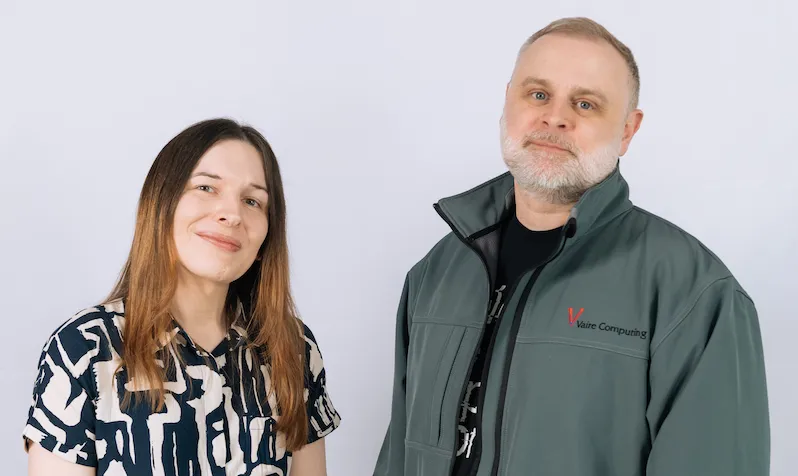Vaire Computing, led by serial entrepreneur Rodolfo Rosini and researcher Hannah Earley from the University of Cambridge, is pioneering reversible computing as a potential solution to the energy efficiency challenges posed by AI-driven hardware. Reversible computing, a concept where computations can be executed in both forward and reverse directions to minimize energy loss as heat, holds promise for significantly reducing energy consumption and heat generation in chips.
The company recently raised $4 million in a seed round, bringing its total funding to $4.5 million. This funding round was supported by 7percent Ventures and Jude Gomila, co-founder of Heyzap. Vaire Computing aims to develop silicon chips that not only consume minimal energy but also generate negligible heat, leveraging the retained energy within the chip itself.
Rodolfo Rosini highlighted that traditional computing methods dissipate nearly all energy as heat, which is wasted. In contrast, reversible computing would recycle energy internally, leading to cooler chips and vastly improved energy efficiency. He drew parallels to the transition from incandescent bulbs to LEDs, emphasizing that reversible computing could similarly revolutionize chip architecture by employing multiple efficient cores instead of a single high-speed core.
Despite the potential of reversible computing, Rosini acknowledged significant challenges ahead before widespread adoption. He noted that while billions have been invested in technologies like quantum computing and GPUs, funding for reversible computing and alternative chip architectures remains relatively low.
Vaire Computing’s approach represents a bold step towards addressing the energy demands of AI hardware, offering a path towards more sustainable and efficient computing technologies for future applications.










